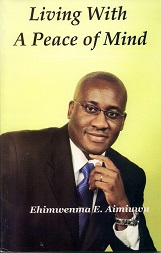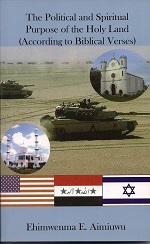 |
|
http://www.guardianunlimited.co.uk/Archive/Article/0,4273,4049783,00.html
President 'ordered murder' of Congo leader
Martin Kettle in Washington
Thursday, August 10, 2000,
The Guardian (UK) Forty years after the murder
of the Congolese independence leader Patrice Lumumba, evidence has emerged in
Washington that President Dwight Eisenhower directly ordered the CIA to "eliminate"
him. The evidence comes in a previously unpublished 1975 interview with the
minute-taker at an August 1960 White House meeting of Eisenhower and his national
security advisers on the Congo crisis. The minute-taker, Robert Johnson, said
in the interview that he vividly recalled the president turning to Allen Dulles,
director of the CIA, "in the full hearing of all those in attendance, and saying
something to the effect that Lumumba should be eliminated".
Mr Johnson recalled: "There was stunned silence
for about 15 seconds and the meeting continued." Lumumba, the first prime minister
of Congo after its independence from Belgium in June 1960, was forced from office
as the country's civil war deepened and was captured by rivals. He was killed
on January 17 1961, becoming one of the key martyrs of the African independence
struggle. No direct quotations were ever recorded at the national security council
meetings, and Mr Johnson only revealed the exchanges in 1975, when he was privately
interviewed by staff of the Senate intelligence committee's post-Watergate inquiry
into US covert action.
The committee concluded that the US was not involved
in the murder, though it confirmed that the CIA had conspired to kill Lumumba,
possibly on Eisenhower's orders. Recent Belgian parliamentary inquiries into
the murder implicated Belgium but failed to come up with a direct US link. The
transcript of Mr Johnson's interview has only come to light because it was included
in material sent to the US national archives in connection with the assassination
of President John F Kennedy.
|
|
The Political & Spiritual Purpose of the
Holy Land
 |
| |
|
http://www.washingtonpost.com/wp-dyn/articles/A52595-2000Aug7.html
Did Ike Authorize a Murder?
By George Lardner Jr., Washington Post Staff Writer,
Tuesday , August 8, 2000; A23
As president, Dwight Eisenhower laid down strict
rules for reports on meetings of the National Security Council: no direct quotations.
A memo concerning an Aug. 18, 1960, meeting about the Congo's troublesome first
premier, Patrice Lumumba, made public this week at the National Archives after
years of gathering dust, suggests the wisdom of the rule--at least as far as
Ike was concerned. The official note taker at that meeting, Robert H. Johnson,
vividly recalled Eisenhower turning to CIA Director Allen Dulles "in the full
hearing of all those in attendance and saying something to the effect that Lumumba
should be eliminated." After that, "according to Mr. Johnson, there was a stunned
silence for about 15 seconds and the meeting continued."
Johnson made the statements in a conversation with
the director of the select Senate intelligence committee on June 10, 1975, in
the midst of its investigation of U.S. assassination plots against foreign leaders.
However, Johnson was a bit more circumspect when he was called before the committee
on June 18. At the hearing, he recalled Eisenhower as saying "something--I can
no longer recall the words--that came across to me as an order for the assassination
of Lumumba, who was then at the center of political conflict and controversy
in the Congo."
|
|
|
|
The Senate committee, headed by the late Frank
Church (D-Idaho), finally decided there was "a reasonable inference" that Eisenhower
had authorized Lumumba's assassination, but stopped short of a firm finding.
The CIA acted as though the president had given the go-ahead, sending one of
its scientists to the Congo in September 1960 with a vial of deadly poison that
could be injected into something Lumumba might eat. "In high quarters here,
it is the clear-cut conclusion that if [Lumumba] continues to hold high office,
the inevitable result will at best be chaos and at worst pave the way to Communist
takeover. . . . His removal must be an urgent and prime objective," Dulles cabled
the CIA station chief in the Congo on Aug. 26, 1960.
|

Nigeria: Dot gate |
|
The poison, however, was never used, and CIA operatives
were unable to get to Lumumba before he was eventually captured by Congolese
rivals and killed on Jan. 17, 1961. The Church committee concluded cautiously
that " it does not appear from the evidence that the United States was in any
way involved in the killing." Fresh questions about that have arisen recently
in Belgium, the Congo's old colonial master, where a parliamentary inquiry was
started in May into the Belgian government's possible involvement in the 35-year-old
Lumumba's murder. (The Congo was known later for many years as Zaire.) The investigation
was prompted by a book published in Belgium last year that says the Brussels
government engineered Lumumba's capture and execution and even helped dispose
of the body. It was cut up with a hacksaw and dissolved in sulfuric acid, according
to a Belgian police commissioner who went on Belgian TV last year, displaying
a bullet and two of what he said were Lumumba's teeth. Whether Washington was
involved in or aware of the final scheme remains unclear.
NSC note taker Johnson's Senate testimony on June
18, 1975, was set down and explored at length--along with the differing recollections
of other officials present at the 1960 NSC meeting--in the Church committee's
1975 report on assassination plots. But what he said in his June 10 interview
remained secret for 25 years. The only reference to it was an ambiguous footnote
stating that "one NSC staff member . . . believed that he witnessed a presidential
order to assassinate Lumumba." The reason the memo has come to light now, along
with thousands of other pages of secret records from the assassination inquiry
and a related subcommittee investigation of President Kennedy's murder, is the
watchfulness of archivist Steven Tilley, the man in charge of the mountainous
collection of JFK records at the archives. After Congress passed the JFK assassination
records law in 1992, the Senate intelligence committee yielded up dozens of
boxes of documents under the requirement for all records "related" to the president's
assassination to be made public.
Looking at the published reports of the Church
committee, Tilley found a lot of footnotes to documents that were still missing.
He recommended that the JFK review board conduct a fresh search of the committee's
holdings. "For some materials, we found microfilm copies, but not the originals,"
said Ronald G. Haron, the review board's last general counsel. He said some
documents were never found in any form. The review board went out of business in
September 1998 and the job of securing the documents' declassification was left
to Tilley. He said there are a small number of documents still awaiting review
by the Justice Department.
|